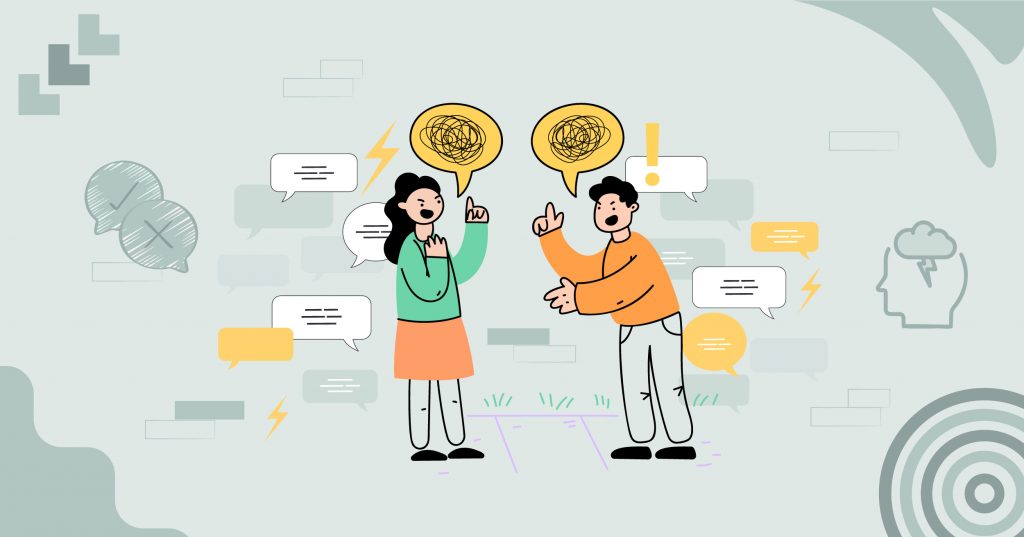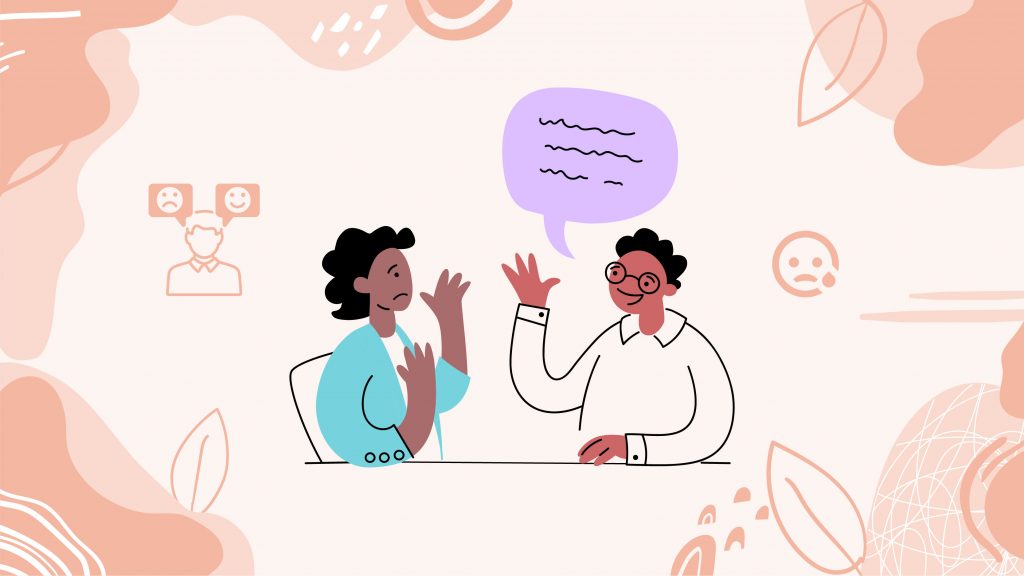Lost in Translation
Think about that time you asked your significant other to pick up milk on their way home, only to be met with a curt response that spiraled into a full-blown argument. Or perhaps you’ve experienced the frustration of sending an email at work that was misinterpreted, leading to tension with a colleague. These instances aren’t just minor hiccups; they can snowball into bigger issues, causing unnecessary stress and strain on our relationships.
Miscommunication is a common source of conflict and frustration in our daily interactions. Whether it’s with a partner, family member, or colleague, the struggle to express oneself clearly without being misunderstood can lead to unnecessary drama. Imagine a scenario where a simple request turns into a heated argument because of a misunderstood tone or choice of words. This struggle is relatable to everyone, as we’ve all experienced the stress and emotional toll of not being able to communicate effectively.
We’ve all had those moments where we replay a conversation in our heads, wondering what went wrong and how things escalated so quickly. The irony is, more often than not, both parties involved in the miscommunication have good intentions but are simply caught in a web of misunderstandings. It’s a universal experience that leaves us feeling isolated and stressed, yet it happens to all of us.
Picture this: You’re telling your friend about your day, and you notice they start to look annoyed. You immediately wonder what you said wrong, and before you know it, the conversation turns sour. It’s not that your friend doesn’t care about your day; perhaps they misunderstood your tone or the context of your story. These small missteps can lead to big drama if not handled carefully.
The Science Behind Miscommunication
Why do misunderstandings occur so frequently? It boils down to how our brains process information and respond to stress. Neurologically, our brains are wired to react quickly to perceived threats, which can include misinterpreted words or tones. The amygdala, the brain’s fear center, triggers a fight-or-flight response, making us more likely to react defensively rather than thoughtfully.
Our brain’s primary job is to keep us safe. When it perceives a threat—like a harsh tone or a critical comment—the amygdala jumps into action. This tiny but powerful part of the brain doesn’t differentiate between a physical threat and an emotional one. It’s like having an overprotective security guard who sounds the alarm at the slightest hint of danger, even if it’s just your partner asking why you didn’t take out the trash.
Once the amygdala is activated, it releases stress hormones like cortisol and adrenaline. These neurochemicals flood our system, preparing us to either fight the threat or flee from it. While this response is great for dealing with a lion in the wild, it’s not so helpful in a conversation with a loved one. High levels of cortisol and adrenaline impair our ability to think clearly and communicate calmly.
This is where the prefrontal cortex comes into play. The prefrontal cortex is the part of the brain responsible for rational thought, decision-making, and impulse control. It helps us analyze situations, consider consequences, and respond appropriately. However, during moments of stress, the prefrontal cortex essentially goes offline. The amygdala takes over, and we react impulsively, often saying things we don’t mean or interpreting others’ words more negatively than intended.
Moreover, our brains use a lot of shortcuts to process information quickly. These shortcuts, known as heuristics, can lead to misunderstandings. For example, when we’re stressed or preoccupied, we might rely more on these shortcuts, jumping to conclusions based on limited information. This means that if someone’s tone of voice or body language triggers a negative heuristic, we might misinterpret their intent.
Consider this: You’re already having a stressful day at work. Your boss sends you a brief, curt email asking for an update. Immediately, your amygdala kicks in, interpreting the tone as critical and demanding. Stress hormones spike, and instead of calmly assessing the email, you react defensively, perhaps firing off a hastily written response or feeling unjustly attacked.
Interestingly, research shows that our emotional state also influences how we interpret ambiguous messages. If we’re feeling anxious or upset, we’re more likely to perceive neutral or unclear statements as negative. So, a simple “We need to talk” text from a friend can suddenly feel like a looming confrontation rather than a casual request for a chat.
Tactics to Improve Communication Skills
- Practice Active Listening: Active listening involves fully concentrating, understanding, responding, and then remembering what is being said. To practice active listening:
- Focus on the speaker: Give your full attention, make eye contact, and avoid interrupting.
- Reflect and clarify: Paraphrase what the other person has said to ensure you’ve understood correctly.
- Show empathy: Acknowledge their feelings and perspectives without immediately offering solutions or counterarguments.
- Use “I” Statements: “I” statements help express your feelings and needs without sounding accusatory. For example, instead of saying, “You never listen to me,” try, “I feel unheard when I’m interrupted during conversations.” This approach reduces defensiveness and opens up a more constructive dialogue.
- Take a Pause: Before responding, take a moment to breathe and collect your thoughts. This pause can prevent knee-jerk reactions and allow your prefrontal cortex to regain control, leading to more thoughtful and less emotional responses.
- Set Clear Boundaries: Establishing boundaries around how you communicate can prevent misunderstandings. For instance, agree on a specific time to discuss sensitive topics and ensure both parties are in a calm and receptive state.
- Practice Mindfulness: Mindfulness techniques, such as meditation and deep breathing, can help reduce overall stress and improve emotional regulation. A calmer mind is better equipped to handle communication challenges effectively.
Subscribe to newsletter
Get your Gut Health Starter Guide right now.
Elevate your Tuesdays with practical, science-backed wisdom propelling you forward on your gut health journey.

Turning Conflict into Connection
Emma and John, a couple in their early thirties, were struggling with constant misunderstandings and escalating arguments. Their communication was fraught with defensive reactions and hurtful words, leaving both feeling unheard and disconnected. Realizing the impact on their relationship, they decided to seek help and learn better communication strategies.
One evening, after a particularly heated argument about something as trivial as leaving dishes in the sink, they sat down and decided that enough was enough. They loved each other deeply but felt their constant miscommunications were driving a wedge between them. They knew they needed to change how they communicated to save their relationship.
They started by practicing active listening. During conversations, they made a conscious effort to put away distractions and focus entirely on each other. Reflecting on what the other said helped them understand each other’s perspectives better. Emma and John also began using “I” statements to express their feelings, which reduced accusations and blame.
Taking a pause before responding became a vital part of their communication. This simple practice allowed them to respond more thoughtfully rather than reacting emotionally. They also set clear boundaries around difficult conversations, choosing specific times when they were both calm and ready to talk.
“I remember the turning point clearly,” says Emma. “We had just had a massive fight over something so small. I felt like I was constantly walking on eggshells, and it was exhausting. That night, we both admitted that we didn’t want to keep fighting and decided to make a change.”
“We started small,” Emma continues. “Putting away our phones when we talked, really listening to each other without interrupting. It was hard at first—old habits die hard—but the effort paid off. I began to see things from John’s perspective more clearly, and I realized how often we were both reacting out of stress rather than truly communicating.”
“Using ‘I’ statements was a game-changer,” Emma adds. “Instead of saying ‘You never listen,’ I started saying ‘I feel unheard when I’m interrupted.’ It made a huge difference in how we approached our conversations. There was less blame, less defensiveness. We were actually talking and not just reacting.”
“The pause before responding was another big step,” John chimes in. “There were so many times I’d just blurt out something hurtful because I was upset. Learning to take a moment, breathe, and then speak helped me avoid those knee-jerk reactions. It sounds simple, but it really made our interactions more thoughtful.”
“Mindfulness was the glue that held it all together,” Emma concludes. “We started meditating together, even just for a few minutes a day. It helped us stay calm and present, not just during our conversations, but in our daily lives. The stress and tension eased, and we found ourselves arguing less and connecting more.”
“Learning to communicate without the drama changed everything for us. We went from constant arguments to feeling like a team again. It’s been a game-changer for our relationship,” Emma reflects. “We still have disagreements, of course, but they’re no longer the explosive battles they used to be. We’re in a much better place now, and it feels amazing.”


















